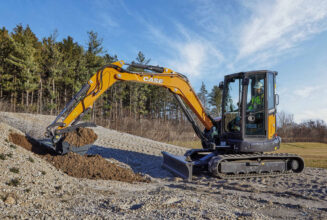Recession Less Likely. We track the reporting
We’re into Q3 2023, and the recession many “experts” predicted has not materialized. We looked into current reporting from a variety of sources to learn what’s happening, economically, in the U.S., and to see if a recession is a possible forecast.
NPR’s Scott Horsley reports on Aug. 4, that the “odds of a soft landing may have just gotten a little better.” We looked simultaneously at the Wall Street Journal for its take, and reporters from both use the same numbers to reach a similar conclusion.

Both NPR and WSJ report that over the last three months, employers have added an average of 217,000 jobs per month. That’s down from an average of 312,000 jobs in the first three months of the year, but it’s still a healthy pace of growth. Employers are still adding more than enough jobs each month to keep pace with population growth.
The Wall Street Journal spins it as “a still solid increase nearly matching June’s downwardly revised 185,000 gain.”
In the end, both news sources agree that, according to NPR, “the Federal Reserve may be able to curb inflation without triggering a sharp jump in unemployment.” And the WSJ reports, “Employers slowed their hiring this summer, adding to signs the economy is gradually cooling and easing pressure for the Federal Reserve to raise interest rates at its next meeting.”
Latest Numbers
Citing government-provided data, NPR reports that the unemployment rate dipped to 3.5% in July from 3.6% the month before. The jobless rate has hovered in a narrow range for more than a year, hitting a half-century low of 3.4% in April.
For the twelve months ending in June wages rose 4.4%, inflation has cooled, and prices climbed just 3%. That means wages are outpacing inflation and that effectively increases workers’ buying power. (The inflation rate for the year ending in July will be released next week.)
The WSJ cites Daniel Zhao, Glassdoor’s Lead Economist, who said, “The job market is still on a slow but steady path towards a soft landing,” referring to the outcome where inflation returns to the Fed’s 2% target without a recession and deep job losses. Wall Street Journal reporting is by Gabriel T. Rubin and Nick Timiraos, from Aug. 4.
CNBC reports that “JP Morgan Chase no longer thinks the U.S. economy will slip into a recession this year.” The bank’s chief economist, Michael Feroli, told clients JP Morgan expects the economy to grow about 2.5 percent in the third quarter, compared to the bank’s previous forecast of 0.5 percent.
Updated inflation data will come out Thursday with the release of the July consumer price index figures.
The CNBC report from Sun. Aug. 6 echoes reports from NPR and WSJ (and others) that lower-than-expected job growth in July is what the Fed wants to see to get inflation down, but not so low that it would “spell trouble for workers or the economy.”
“Overall, this is still not the picture of the labor market we would expect to see if the economy were in danger of decelerating dramatically in the short term, although without questions there are signs of moderation,” said Rick Rieder, a chief investment officer at Blackrock, and asset management firm.
CNBC also reported that Bank of America, the country’s largest bank, called for a soft landing, not a recession. Finally, Goldman Sachs lowered its probability of a recession from 25 percent to 20 percent.
What’s Next?
The prognosticators are still active, of course. We found two opposing viewpoints that are worth a read. First, the Atlantic posted an analysis titled, “How the Recession Doomers Got the U.S. Economy So Wrong.” It says, in part, “Employment is high, inflation is falling, real incomes are rising, and inequality is narrowing. Superlatives abound. The official unemployment rate is near a 60-year low, and the jobless rate for Black Americans recently hit an all-time low. The U.S. has the fastest growth rate and the lowest annual inflation of any G7 country. Yes, problems exist. Essentials such as housing, education, and health care are still too expensive; wages could be growing faster; and last year’s inflation is still baked into today’s prices. But mostly, things are good—for now.” And to answer the headline’s question, “Maybe the recession doomers got the economy very wrong precisely because they were so convincing. A sense of economic dusk took the edge off spending, hiring, and wage growth, and that, in turn, reduced inflation without as yet causing a full-blown recession.”
On the other side (and it’s currently more difficult to find experts who say a recession is still likely), Bill Conerly writes in Forbes magazine, “Higher borrowing costs will delay consumer and business spending on big-ticket items, which will lead to recession. Banks are tightening their credit standards and increasing their loan pricing over deposit costs, according to the Fed’s latest Senior Loan Officer Opinion Survey. My judgment call remains that the recession will begin in the first half of 2024, or possibly late in 2023.” His Aug. 5 piece is titled “Recession Forecast Still Right For Late 2023 Or Early 2024.”




